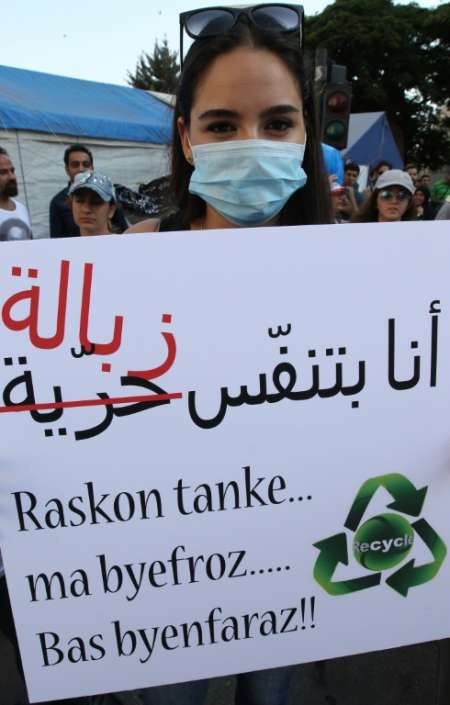
i24news
Berlin studying ways in which it can help Beirut lower costs of dealing with excess trash
In an attempt to ease Lebanon’s waste disposal problem, Germany is exploring ways for Beirut to export its garbage to the European country, according to Beirut-based paper The Daily Star.
Politicians in Beirut, divided by local and regional conflicts, have been unable to agree on where to dump the capital’s rubbish. Mounting piles of garbage festering in the summer heat are triggering health warnings and protests by residents furious their government failed to avoid a crisis ignited by the long-scheduled closure of a major landfill site last month.
The German ambassador to Lebanon “welcomed the idea of exporting the garbage to Germany,” Lebanese Economy Minister Alain Hakim told a local television station after meeting with the envoy, according to the report. “We agreed on preparing a feasibility study which will allow us to lay a road map.”
Lebanese authorities hope that by exporting the trash to Germany, they will only have to pay $70-100 per ton of garbage, compared to $147 per ton paid to a previous contractor.
A plan to dump rubbish from Beirut – where more than half the population live – at locations around Lebanon has met resistance from the regions. The front page of the French language newspaper L’Orient Le Jour on Thursday declared Lebanon the "Trash can Republic."
The crisis echoes wider problems facing Lebanon.
The weak state has long been criticized for failing to develop the country and its infrastructure: Beirut still suffers daily power cuts some 25 years since the end of the 1975-1990 civil war.
But government has been particularly poor since the eruption of the war in neighboring Syria. That conflict has exacerbated Lebanon’s political divisions, often along sectarian lines that reflect the Syrian conflict.
 Joseph Eid (AFP)"The humid summer air of Beirut has started to reek as uncollected trash piles up in the streets after protesters shut down Lebanon’s largest landfill at a time of political paralysis"
Joseph Eid (AFP)"The humid summer air of Beirut has started to reek as uncollected trash piles up in the streets after protesters shut down Lebanon’s largest landfill at a time of political paralysis"The presidency has been vacant for more than a year, and parliament elected in 2009 has extended its own term and postponed elections until 2017 on the grounds of instability.
A government of national unity has maintained a semblance of central authority and helped to contain sectarian tensions.
But it is limping along at best



